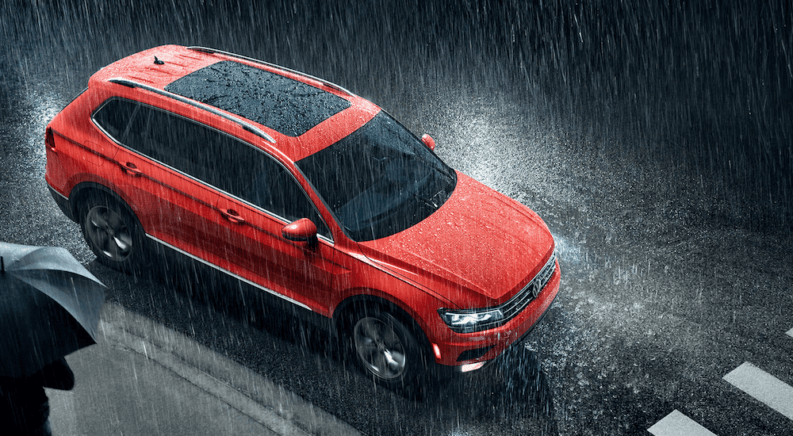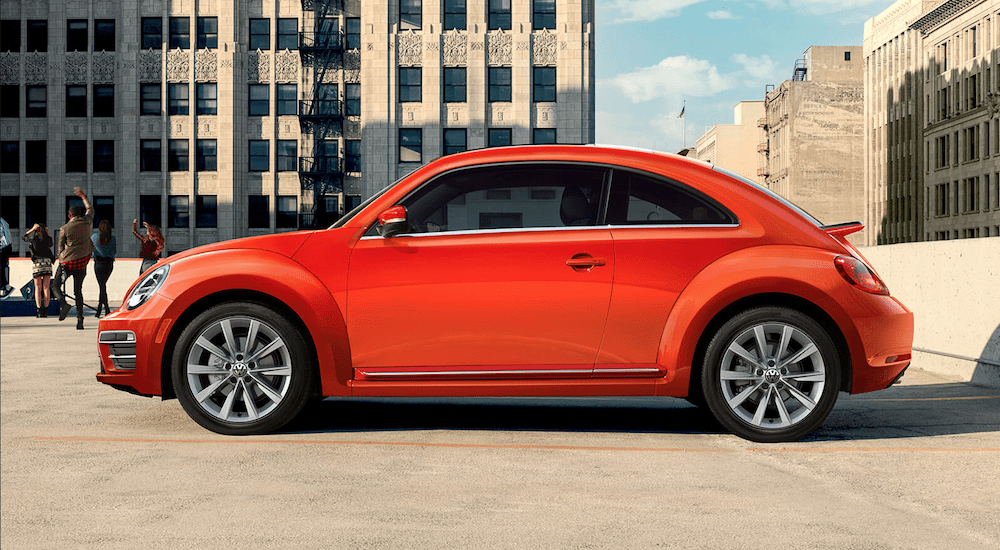As of late, automotive news seems to be moving at breakneck speed, detailing the race towards enhanced sustainability, autonomous self-driving technology and the surprising partnerships between automakers and tech giants (and even automakers themselves) in the hopes of gaining the ultimate pole position within the industry. But not all news is good; and even if bad press is better than no press at all, it’s hard to argue the inevitable damage to consumer trust which occurs with each of the countless mass recalls being issued as of late. And it feels like the Volkswagen Group might just be sustaining a lion’s share of negative sentiment in that regard.
But in recent weeks Volkswagen has announced their staggering strategy to go all-electric, and the timing couldn’t be better. Setting aside the automaker’s need for good press in the wake of emissions scandals and countless recalls, the VW group aims to apply their new electric platform to 50 million vehicles in the next several years. A firm timeline has yet to be given, but with a new all-electric production facility being built in China, and a secured partner in the production of 50 million batteries, it would appear that VW has one of the best-realized set-up strategies.
Another notable key to their potential success comes in the $1.4 billion investment made to convert the automaker’s Zwickau manufacturing plant in Germany into an EV production line. Previously used to produce the VW Golf series, this is clear deflation of VW’s intent and the urgency which they’ve attached to it. In fact, they are expecting vehicles (beginning with the internally name “Neo” Hatchback) to make their way off the assembly line by November 2019, a necessarily aggressive deadline if VW plans to compete with the likes of Tesla.
And there is an uncharacteristic theatricality to the strategy, with Thomas Ulbrich, a representative for the E-Mobility brand stating that it “will herald a new era for Volkswagen, comparable with the first Beetle.” Propaganda aside, VW could certainly use the positive upswing to shift gears away from the 12% decline in stock value year-to-date. And stretching across a decent span of time allows them the opportunity to blend success with forgiveness should further headaches arise on their road to a new era.
As mentioned above, a firm timeline has yet to be given for the strategy, but we do know that the end-date for phase one has been set for 2025. By that point, the Volkswagen Group intends to introduce 50 all-electric models across their 12 auto brands, all built upon the company’s new MEB platform. So, the overhaul of Zwickau and the statement of the new production plant in China are certainly necessary investments. The same could be said for the expectation that VW will announce a North American plant in the near future.
To-date, the overall spend associated with these investments totals at somewhere around $11.4 billion. And VW Group CEO Herbert Weiss is showing his cards when it comes to acknowledging the ripple effect of such an investment claiming that, “Volkswagen must become more efficient, more productive and more profitable in order to finance the high expenditure in the future and in order to stay competitive.” And while such a statement bears little in the way of surprises, it says a lot about where else VW might be placing their attention in the years to come (and it rhymes with ‘wallity muntrol’). In order to restore consumer faith, it will be imperative for VW to address, and minimize (if not eliminate) any trend towards further recalls. Failure to do so in a prompt manner, closing out a more questionable chapter in their history, could equate to disastrous self-sabotage for an automaker with so much riding on the next chapter.
Which brings us to another automaker with a steady flow of ‘fun’ press, albeit not always positive in nature. Yes, you’ve probably figured out that we’re talking about Tesla; and it needs to be said, we’re on-board with most kudos showered upon them for making electric vehicles safe, fun and beautiful. In fact, their competence in doing so has been one of the industry’s great historical game-changers. First automakers ignored them. Then they surveilled them. Now, most automakers are chasing Tesla and VW is no exception.
Whether or not VW’s oft-publicized partnership plan with Ford comes to fruition, the Bavarians have made their intentions clear: to produce all-electric vehicles accessibly priced below the $23,000 mark. A lofty proposition for sure, and it’s safe to say that the kind of volumes they’ve outlined above will be instrumental in hitting that point. But going from 0 to 200,000 units (let alone on a new platform) is no small task, and it feels hasty to predict economies so early on.
Tesla manufactures annually at a rate nearing the 200,000 mark, but consider that the Tesla 3 starts at around $46,000. If a company that prides itself on marrying innovation and efficiency operates at that kind of price point, what are the chances that VW (complete with struggles and storms to be weathered) can expect to halve that price point?
And even if VW is successful in meeting their production goals and price points, let’s be honest: we’re not entirely certain of how great the interest will be. Eco-focused drivers seem far less likely to place their buying dollar in the hands of a company charged with conscious falsification of emissions testing. Such a clear disdain for matters of ecology, paired with an obvious lack of ethics, has done more than cost the company billions. It might have cost them the opportunity to evolve, pull one of the greatest 180s of all time, and reimagine their lineup for a new generation of drivers.
Will that be the case? Only time will tell. VW has a long road ahead of them in order to refill the cup of good faith they’ll need customers to drink from and, for what it’s worth, we wish them the best of luck. Without any major disruption of Tesla’s current momentum, it’s hard to believe that VW could take the upstart company head-on. But if their long-game plays out, they could certainly remain a competitive industry leader come 2025.





